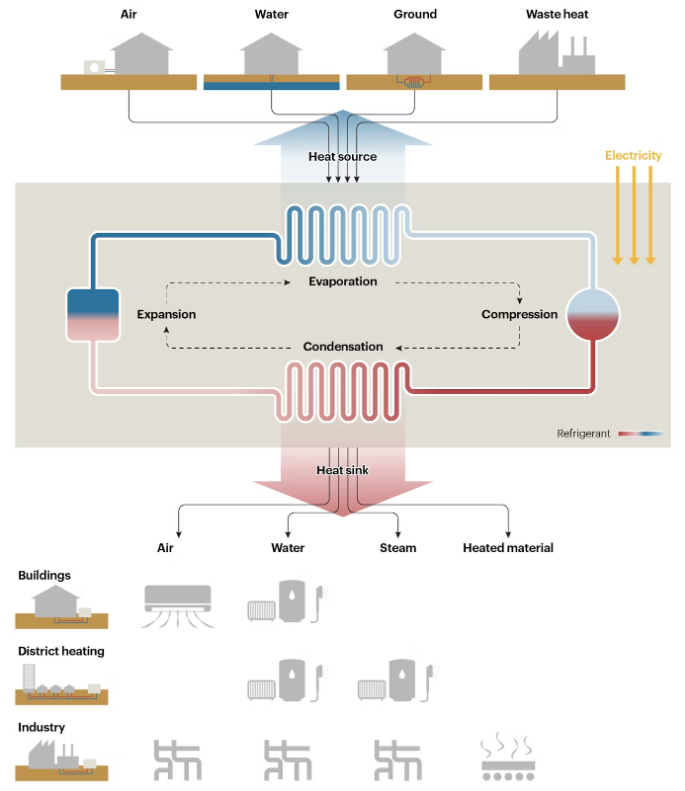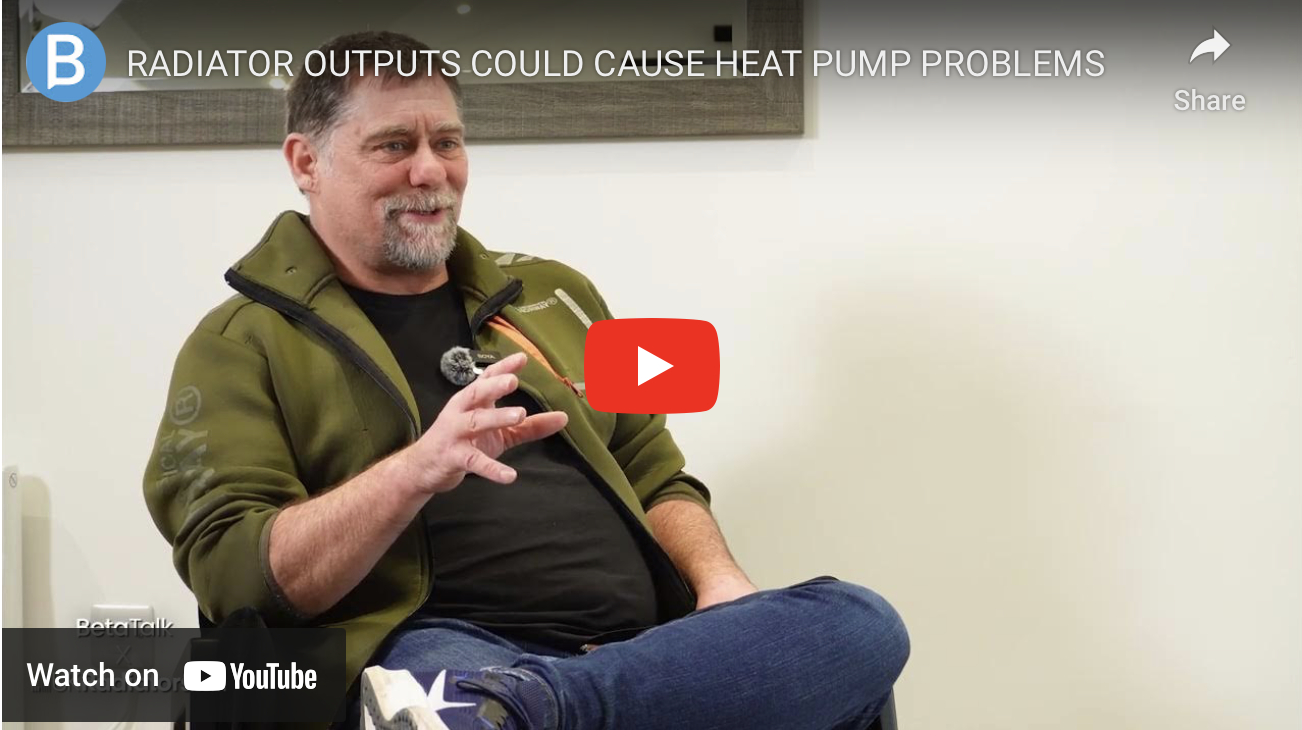
Heating and the importance of systems thinking.
The Heat Pump Summit took place at the Blavatnik School of Government, University of Oxford on 10th April.
Despite a long history of heat pump innovation and usage - the first large scale heat pump in the UK was in operation in 1945 in Norwich - household installed heat pumps in the UK have lagged its European neighbours 👉🏾 https://www.thesustainableinvestor.org.uk/perspective-how-do-we-pump-up-the-volume-on-heat-pumps/
The aim of the summit is to "aid the rapid progression of the heat pump industry".
Session titles included "How can we collaborate as an industry to accelerate heat pump adoption?" and "Mass market for heat pumps: which policies work?" and "Carrots and sticks: The role of government policy in kickstarting Britain's heat pump revolution."
Host of renewable energy podcast BetaTalk and heating expert Nathan Gambling made an important plea ahead of the summit: "Don't lose the message that heating is a system."
In other words it isn't about an efficient heat pump or an efficient boiler in isolation, but all parts of the system need to be appropriate for the use case.
Nathan has used a great analogy in the past. He points out that simply transferring the heart of Usain Bolt (current men's 100m and 200m track world record holder) into his own body is not going to make him run faster because the other parts of 'the system' are not 'appropriately tuned.'
In the case of the built environment, that system comprises heat sources and then something to move that heat to a heat sink.

As Nathan points out, radiators in the home are the 'sink' part of the system and the heat pump deals with the 'source'.
We need all parts of the system to work effectively together and Nathan highlights some issues with measurement and published figures, not only of heat pumps but also of radiators - in some cases outright falsification. As Nathan points out, if we can't rely on accurate reporting of power outputs "there is a risk heat pump systems will run hotter than they need to causing higher bills for the customer." The negative press associated with that obviously acts as a barrier to adoption. Here is a video version of his BetaTalk podcast that discusses this 👉🏾

Looking more broadly at other sustainability transitions, the language that is used is an important tool in arriving at appropriate solutions. How we frame questions is important. With regards the home, compare these two questions:
"How do we heat the home?" (or cool it)
This framing pushes us towards a focus on the energy or fuel source required. Indeed, much focus has been on replacing natural gas boilers with “X”, where “X” is a heat pump, hydrogen, solar, wind etc., while ignoring (or at least deprioritising) other potential solutions.
We could frame the question differently:
“How do enable people to keep their homes at an appropriate temperature efficiently?”
This is more open and encourages a more holistic thought process, bringing in not only the energy source to vary temperature but also ways in which we can prevent wastage, enable people through funding and resources or indeed identify what “appropriate temperature” means. Effective insulation, innovative building materials and design (for airflow and thermal flow), and even consideration of whether the provision is local or distributed could all ultimately reduce the ongoing cost for the end consumer which has important ramifications for social equity too and can be more readily applied globally as a starting point.
The same is true of transportation - replacing ICE vehicles with EV or looking at the overall system of how we live and interact with different places?
We have written on systems thinking a lot.
Energy systems - it is not just about the generating source but the overall infrastructure to get electricity to where it is needed at the right time 👉🏾 https://www.thesustainableinvestor.org.uk/deep-dive-software-based-electricity-grid-stability/
Providing laptops to students who may not otherwise have access is not just about buying the laptops themselves, but the infrastructure to deliver, monitor and maintain too 👉🏾 https://www.thesustainableinvestor.org.uk/facilitating-inclusion-lapsafe/
Finally, when thinking about our own health, considering overall wellbeing can be more effective than treating 👉🏾 https://www.thesustainableinvestor.org.uk/perspective-holistic-healthcare/
This article featured in What Caught Our Eye, a weekly email featuring stories we found particularly interesting during the week and why. We also give our lateral thought on each one. What Caught our Eye is available to read in full by members.
If you are not a member yet, you can read What Caught Our Eye when it comes out direct in your email inbox plus all of our blogs in full...

Click this link to register 👉🏾 https://www.thesustainableinvestor.org.uk/register/

Please read: important legal stuff.

